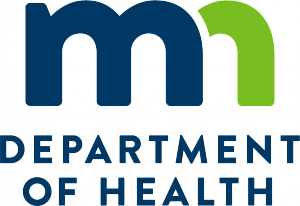In May 2018, Provost Kaivola merged the offices of Sponsored Programs and Corporate and Foundation Relations in an effort to align and integrate all grant-funded activities at Augsburg. Below are abstracts from grants awarded this fiscal year.
New Particle Formation Experiments: Nucleation and Growth
Dr. David Hanson
The National Science Foundation provided $384,080 for the project, which focuses on the formation and growth of new particles in the atmosphere. Laboratory experiments will be conducted to measure changes in the rate of new particle formation and growth with changes in composition, temperature, and relative humidity. The results are expected to lead to improved accuracy in predicting the impacts of new particle formation on climate, health and visibility. The project is three years.
Heliophysics Guest Investigator Open Project: Determining the Fundamentals of Physics EMIC Waves: Observations and Theory
Dr. Mark Engebretson
As a subaward of Johns Hopkins University, the National Aeronautics and Space Administration provided $59,773 to Augsburg for conducting data survey and analysis tasks related to the study of EMIC waves observed by the MMS and Van Allen Probes spacecraft. The project is three years.
Medical Education and Research Costs (MERC) – Physician Assistant, Nursing, and Social Work
Dr. Alica Quella, Dr. Joyce Miller, Dr. Bibiana Koh
The MERC Fund was established in 1996 and is administered by the Minnesota Department of Health. The purpose of this grant is to compensate Minnesota clinical training facilities for a portion of the clinical training costs for specific medical professions. The Minnesota Department of Health’s Health Policy Division awarded $1,091,498 to the Physician Assistant, Nursing, and Social Work programs for student clinical hours logged at qualifying sites.
Minnesota Urban Debate League
Dr. Robert Groven (Faculty Advisor)
A program of Augsburg University, the Minnesota Urban Debate League (MNUDL) makes it possible for Twin Cities high schools and middle schools to offer academic competitive debate programming by providing everything a school needs to have a debate team, including training, curriculum, transportation, tournament operations, and volunteer management. MNUDL began with five schools and 40 students and has grown dramatically. Under the leadership of faculty director Bob Goven (Communications Studies) and Executive Director, Amy Cram Helwich, the program now serves over 930 students in more than 40 Minneapolis Public Schools (MPS) and Saint Paul Public Schools (SPPS).
MNUDL secured grants totaling nearly $200,000 during fiscal year 2019, including contributions and pledges from the Greater Twin Cities United Way, Bank of America, Sunrise Banks, Saint Paul and Minnesota Community Foundations, and more.
Five-Year M.Div Pathway Program
Dr. Jeremy Myers
The Robert D. and Patricia E. Kern Family Foundation, Inc. provided $499,454 to help reduce the overall cost of professional pastoral leadership education by creating an articulated 5-year pathway from Augsburg University to Luther Seminary’s accelerated Master of Divinity (MDiv) degree program and by building capacity within the Center for Vocation and the Theology and Public Leadership degree program to incorporate opportunities for high-impact field work, reflection, and discernment into the undergraduate experience.
Urban Resilience and Climate Change Workshop
Dr. Joe Underhill
Mississippi Watershed Management Organization provided $4,396 and additional in-kind supports and services for Underhill and staff from the Nobel Peace Prize Forum to help form a community of practice and accountability among several large property owners in Cedar-Riverside (Fairview, U of M, Augsburg, Riverside Plaza). Project goals included the development and sharing of best practices/prototypes for sustainable stormwater management techniques that could be used as a model for other partnerships and collaborations within the Mississippi River watershed.
River Semester 2018
Dr. Joe Underhill
Pentair Foundation provided $20,000 for Augsburg’s River Semester, a high-impact educational experience by combining rigorous coursework and a unique, immersive field experience, with strong partnerships all along the Mississippi River. River Semester is a learning model for education in the 21st Century–highly experiential, connected and wired, with project-based and applied learning opportunities for students in the context of an ambitious expedition down one of the world’s iconic waterways. Students end up paddling close to 1,000 river miles, averaging 70 miles per week. Along the way, they earn a full 16 credits.
Global Governance Consortium
Dr. Joe Underhill
The Workable World Trust provided $22,000 for the Human Rights Forum to foster coordination among faculty and staff from the Associated Colleges of the Twin Cities around the themes of global governance and the role of students in promoting global governance and/or United Nations reform. Funds will be used to host an annual retreat for students and faculty, organize a series of on-campus events, and involve other community organizations as programming demands.
Vocation E-portfolio Pilot Project
Dr. Marty Stortz
The Council of Independent Colleges’ Network for Vocation in Undergraduate Education (NetVUE) provided $29,700 to help develop and pilot a student-curated electronic portfolio in which curricular, co-curricular, and extra-curricular experiences are reflected on and documented around the question of vocation. The vocation portfolio (vPortfolio) will be a modern, flexible tool that provides focus and coherence to vocational discernment processes for our students, and will refocus Augsburg’s institutional emphasis on vocation. This effort will place vocation at the dynamic interface between three stories: the story of self, the story of us, and the story of now.



